What is Electrical & Electronic Engineering?
Electrical and Electronic Engineering is about the science and technology related to generating, distributing, storage and use
of electrical energy for the benefit of mankind. It is the broadest and most dynamic of all engineering covering everything from micron-scale transistors to macro-scale network systems.
Think about how many items in your daily life we use power such as batteries, petrol motors or even solar panels.
Electrical and Electronic engineers are involved in the analysis of existing systems whether electrical, electronic or computer systems and they are often involved in creating and designing new products and systems for manufacturing industries.
What is Electronic Engineering?
In general, electronics engineers focus on the electronic circuits which are at the heart of computer science, while electrical engineers are concerned with the large-scale transfer of electrical currents as a power source.
Electronics Engineering focuses on solid state devices and integrated circuits that enable the creation of devices such as cellular phones, miniature computers, electronic controls for automotive and navigation systems in cars, home appliances, and a vast variety of other products for daily usage.
What is Electrical Engineering?
On the other hand, Electrical Engineering is a field of engineering that generally studies the designing, installation, manufacturing, maintenance and testing of electrical and electronic equipment.
But there is more to Electrical engineering than just that. Many advances in biomedicine were pioneered by electrical engineers, many software houses such as Microsoft employ electrical engineers and so do airplane manufacturers such as Boeing and Airbus.
Most astronomical observatories employ Electrical engineers to design their telescopes, other optical instruments and do advanced signal processing.
Areas of Electrical and Electronic Engineering include:
- Electronics
- Software
- Hardware
- Signal Processing
- Computer Engineering
- Power Electronics
- Power Systems Engineering (including renewable energy)
- Nanotechnology
- Biomedical Imaging
- Embedded Systems
- Control
Study Electrical & Electronic Engineering degree course at the best universities in Malaysia
E&E is a very important part of our everyday life. The study of Electrical & Electronic Engineering can involve large amounts of
power such as power and control engineering, large devices like power stations and electric vehicles or small amounts of power like computers, communications and information engineering and small devices including MP3 players, iPads and cell phones.
One of the best universities in Malaysia for electrical & electronic engineering is Curtin University Sarawak.
Students can consider studying Electrical & Electronic Engineering at one of the pioneer universities, UCSI University, or at Asia Pacific University, the best university for computing programmes. Software Engineering is closely related to Electrical & Electronic Engineering.
Curtin University Sarawak, UCSI University and Asia Pacific University are all ranked at Tier 5 or Excellent in the SETARA 2013 rating by the Malaysian Qualifications Agency (MQA).
Other universities that can be considered is KDU University College.
The Engineering Degrees of these universities are accredited by the Board of Engineers Malaysia (BEM) which is a signatory to the Washington Accord. This accreditation ensures that Engineering Graduates will have the following benefits in countries who are signatories of the Washington Accord:
- Opportunities to register as a Graduate Engineer with Board of Engineers Malaysia (BEM) or the relevant professional bodies in other countries who are signatories under the Washington Accord.
- Pathways to becoming a Professional or Chartered Engineer.
- Assurance that graduates are considered as having met international academic standards for engineering practice.
Study Bachelor of Engineering (Electrical Power Engineering) and Bachelor of Engineering (Electronic & Communication Engineering) Degree Courses at the Top Ranked Curtin University Sarawak
Curtin University Sarawak offers 2 degrees related to the Electrical & Electronic Engineering field which are:
- Bachelor of Engineering (Electrical Power Engineering)
- Bachelor of Engineering (Electronic and Communication Engineering)
Introduction to the Bachelor of Engineering (Electrical Power Engineering) at Curtin University Sarawak
Electrical Engineering is the branch of engineering that is concerned with the generation, transmission and distribution of electrical power. A new field in Electrical Engineering is the application of electronics to large power devices.
The study of Power Electronics and Renewable Energy are features of the Electrical Engineering course at Curtin.
There is hardly any aspect of our modern civilisation that is not dependent upon electrical energy. We use this for heating, cooling, lighting, transportation, manufacturing and production, minerals processing to name just a few areas of application.
Electrical power engineering considers these applications of electrical energy, together with its generation, transmission and distribution, as well as the harnessing of sources of renewable and sustainable energy.
Introduction to the Bachelor of Engineering (Electronic and Communication Engineering) at Curtin University Sarawak
The field of Electrical and Communication Engineering deals with analogue and digital communication systems. The student of
the course learns about information processing, telecommunications and computer communication networks, signal and image processing, control and instrumentation as well as electronic design.
Modern computing is predominantly distributed and emphasizes wireless communication and mobile networking. It involves an interaction of network-connected processors, so that computing and networking are inextricably linked. A communications engineer is concerned with the design of such networks and considers all hardware, software and firmware functions.
He will also be involved in the implementation of protocols for the transmission of data, the detection and correction of transmission errors, the sharing of communication capacity on high-speed media, and the routing of data to specific destinations within a network.
With the rapid growth and progress of the information society, the role of communications is becoming even more critical in increasing an industry’s efficiency and competitiveness.
Some examples include transaction processing at banks, POS outlets at supermarkets, electronic funds transfer, office and factory automation and intelligent home appliances.
The electronics and communication fields represent two of the fastest growing technology areas both in Australia and internationally and job opportunities in these fields abound.
With the rapid progress of the information society, the role of communications is becoming even more crucial to increased industry efficiency and competitiveness.
The reason lies in the decentralisation of computing power in both the office and factory environment and the ability of specialised communication networks to link all geographically and spatially separated elements. In this major students learn about the theoretical and practical aspects of modern electronic and communication systems.
Professional Recognition for the Bachelor of Engineering (Electronic and Communication Engineering) at Curtin University Sarawak
The degree is a professional qualification recognized by the Institution of Engineers Australia (IEA) and the Board of Engineers Malaysia (BEM). By mutual agreement between IEA and similar international bodies, Curtin’s Electrical and Communication Engineering degree is internationally recognized.
Industrial Collaborators for the Engineering Degree Programmes at Curtin University Sarawak
The following industries have been partnered with Curtin Electrical and Computer Engineering Department not only in aspects of Consultancy activities and Research and Development, but also in giving financial supports as well.
Sponsored sofware by company
Industrial Advisory Committee for the Computer System Engineering Degree Programme at Curtin University Sarawak
As part of Curtin University Sarawak's commitment to improve the industry relevance of the subjects taught in the electrical and
computer engineering department, the university created a panel of industry experts:
- Ir. Polycarp Wong Heang Fui, Sarawak Energy Bhd.
- Hj Abg Mohamed Hj Abg Deli, WEHAYA Sdn Bhd.
- Victor Thomas Tudin, Danawa Wireless.
- David Lee, ESP Rope Access Technology Sdn. Bhd.
- Dr. Denis Lee Hau Aik, Sarawak Energy Berhad.
- Cynthina Chew, Sarawak Shell Berhad.
- Ir. Ting Shi Chiang, Professional Engineer in Electrical industries.
- Mohd. Amaluddin Yusoff, Sarawak Shell Berhad
- Marconi Sim, Halliburton Energy and Services.
- Eugene Lim Chang Thiaw, Electrical Department,Perunding Ranhill Worley Sdn Bhd.
- Gordon Lee Kwang Jui, Sesco Regional Office.
- Chien Hui Liang (William), Perunding Omega PMC Sdn Bhd.
Curtin University Sarawak Rankings & Reputation
- 2014 - Curtin University Sarawak is rated Tie5 or Excellent in the SETARA 2013 ranking of universities in Malaysia by the Malaysian Qualifications Agency (MQA)
- 2013 - Curtin Sarawak achieves ISO 9001: 2008 certification, delivered by certifying agency SIRIM QAS Sdn. Bhd. It brings Curtin Sarawak in line with Curtin University’s campuses in Perth and Singapore, which have also achieved ISO 9001:2008 certification.
- 2013 - Higher degree by research (HDR) student Lue Ik Hong becomes Curtin Sarawak’s second recipient of MyBrain15 scholarship for postgraduate study.
- 2013 - Curtin Sarawak achieves a Tier 5 or “Excellent” rating for Engineering in the new Discipline-Based Rating System (D-Setara) introduced by the Malaysian Qualifications Agency (MQA) to rate the quality of teaching and learning of undergraduates in Malaysian higher learning institutions.
- 2013 - Dr. Ujjal Kumar Ghosh, senior lecturer in the Department of Chemical Engineering, is honoured with a Chemcon Distinguished Speaker (CDS) Award by the Indian Institute of Chemical Engineers (IIChE). The CDS Award is awarded to individuals who have made significant contributions to the field of chemical engineering either in academia or in industry.
- 2013 - Dr. Amandeep S. Sidhu of the Curtin Sarawak Research Institute co-organises the 1st International Symposium on Biomedical Data Infrastructure (BDI 2013) in Kuala Lumpur with Dr. Sarinder K. Dhillon from University of Malaya. The symposium discusses the next generation of information integration approaches that are needed to ensure increasing infrastructure agility required for high-throughput biomedical research.
- 2013 - Associate Professor Dr. Michael K. Danquah of the Department of Chemical and Petroleum Engineering is appointed member of the Board of Trustees of Open Access Publishing London (OAPL).
- 2013 - Two academics from Curtin Sarawak, Associate Professor Dr. Michael K. Danquah and Dr. Mesfin G. Woldetensay from the Department of Chemical and Petroleum Engineering, School of Engineering and Science, were shortlisted by The Institution of Chemical Engineers (IChemE) Malaysia for the IChemE Awards 2013. They were nominated for the Innovator of the Year and the Petrochemical Processing awards, respectively.
- 2012 - Curtin University Sarawak is rated Tie5 or Excellent in the SETARA 2011 ranking of universities in Malaysia by the Malaysian Qualifications Agency (MQA)
State-of-the-art Facilities at Curtin University Sarawak
Curtin Sarawak's state-of-the-art campus is equipped with the latest computers, software, laboratory equipment, teaching facilities and reference materials in addition to free Internet access and e-mail facilities for students.
Students also have access to learning resources at Curtin’s main campus and other resources via the Internet.
The use of modern technology on the campus is also very extensive as Curtin places great emphasis on utilising technology to support teaching, learning and research.
Significant investment in computing and networking facilities continues to be made to ensure facilities are state-of-the-art.
The campus currently has 14 computer labs with over 400 PCs for student use in addition to terminals located in the library that provide access to the library's online databases.
Furthermore, sophisticated IT linkages provide access to the online resources of the main campus in Perth.
As research activities are an essential component of academic excellence at Curtin Sarawak, the campus boasts a number of
state-of-the-art science and engineering labs, including Chemical Engineering, Geotechnical Engineering, Structural Engineering, Electrical Power, Electronic and Communication, Embedded System, Networking, Renewable Energy and Geophysics labs. Film and television students, meanwhile, can count on a custom-built Film Lab and Editing Suite equipped with the latest broadcast-quality film-making equipment and software.
Curtin Sarawak is now entering its next phase of development spanning the next five years, during which its student population is expected to surpass 5,000.
A state-of-the art Library and Auditorium complex, a signature work of architecture and new campus landmark, has been completed. Incorporating a 400-seat auditorium and modern library facilities, it heralds an enrichment of campus life and the student and staff experience.
They also have access to recreational facilities such as the multipurpose Recreation and Event Centre which houses an indoor basketball court, badminton courts and gym facilities, as well as a football field, rugby pitch, outdoor basketball court, tennis
courts and indoor volleyball cum futsal court.
Students at Curtin Sarawak can find everything they need on the campus. In addition to the library and laboratories, there is academic support, study areas, a choice of food outlets, student lounge, postal and banking facilities, campus bookshop, convenience store, health and first aid centre, Islamic Centre, and public transport.
Curtin Sarawak aims to produce career-ready graduates with a passion for life-long learning and a commitment to serving the needs of the broader community.
Curtin's courses have applied, practical subjects with a strong emphasis on industry links, which means students will have the opportunity to work closely with companies in their chosen field, often securing employment before they
graduate.
In addition, Curtin has a strong commitment to multi-cultural and international engagement with our student population now numbering some 3,000.
This cultural diversity adds a rich and valuable dimension to the campus atmosphere and also prepares their graduates to live and work in an increasingly global environment.
Just as with the student cohort, Curtin's highly-qualified and experienced staff members come not just from Malaysia but also from Australia and numerous other countries.
Having such high-calibre staff has allowed Curtin Sarawak to develop a number of research centres, many of which are linked to research
programmes at the Perth campus.
Assurance of Quality at Curtin University Sarawak
Curtin University Sarawak is renowned for their links with industry and business, and for the practical and applied nature of our courses.
Curtin Sarawak's courses are identical in all aspects to those offered at Curtin's main campus in Australia, are endorsed by the Malaysian Ministry of Higher Education, Malaysian Qualifications Agency and Malaysian Public Services Department (JPA), and accredited by professional bodies, ensuring wide recognition.
It is characteristics like these that differentiate their courses from those of other universities.
Creating International Opportunities at Curtin University Sarawak
With seven campuses across the Asia-Pacific region, Curtin gives you all the benefits of a truly international university.
All the courses offered at their campuses in Sarawak, Singapore and Sydney are run using the same unit structure and study materials as their courses in Perth, meaning that you can transfer between two campuses to complete your Curtin degree.
When you graduate, you'll have a degree that is recognised in more
places around the world and be able to complete further study at either campus to enhance your career prospects.
BEng. (Hons) Electrical and Electronic Engineering Degree at UCSI University
UCSI University is famous for its engineering courses and has offered the Electrical & Electronic Engineering course since
1992. At UCSI University, the Electrical and Electronic Engineering programme covers a tremendous array of courses related to both fields, ranging from basic topics such as circuits, analogue and digital devices and systems, computing, machines, communications and digital networks to more specialised topics like filter design, control, instrumentation, power, signal processing, VLSI design, and microprocessors / microcontrollers, among others.
This well-established and broad-based engineering degree programme combines theoretical studies with practical applications and problem-solving skills in the realm of engineering. The course grooms students to be well-trained individuals and exposes them to hands-on sessions with software and hardware design tools, in line with industry needs.
Top electrical & electronic engineering students at UCSI University can be inducted into the IEEE Honours Society, Mu Alpha. The winning Malaysian entry in 2014 to enter the James Dyson international award competition, was submitted by a UCSI University student Desmond Tan Mun Yung, was a full-body “exoskeleton” which aims to help disabled patients with movement.
To foster competitiveness among graduates, students are also required to undergo industrial training under UCSI University’s Co-operative Placement Training Scheme at the end of the 2nd and 3rd academic years. This training allows students to learn and familiarise themselves with the real-life working environment. Apart from that, students also undertake research and development projects in their final year of study.
Programme Details for the Electrical & Electronic Engineering Degree at UCSI University
The duration of the programme is 4 years.
In each year there are two long-semesters consisting of 14 weeks of instruction with 2 weeks of examinations, and one short-semester consisting of 7 weeks of instruction with 1 week of examinations. The long-semesters start in January and May, while the short-semester starts in September.
In the months of November & December students undergo industrial training under the Co-Operative Placement Scheme to learn and to familiarize themselves with real life working environment. In addition, students also undertake a research and development project in their final year.
The number of contact hours per courses per week depends on the credit and teaching methodology of each course. Each credit is approximately equivalent to 1 hour of class, or 2 hours of labs per week.
The teaching and learning strategies and assessment are designed depending on and according to the nature of subject or topic being taught or investigated.
The school of Engineering implements different methods and styles of teaching and learning and assessment to ensure the successful achievement of the learning outcomes of its programmes, that includes
- Ordinary classroom lectures
- Group tutorials
- Laboratory works
- Seminars and eforums
- Directed and self learning
- Invited guest lectures
- Industrial visits
Year 1 Electrical and Electronic Engineering Degree subjects at UCSI University
- Calculus & Analytical Geometry II
- Circuit Theory I *
- Digital Electronics I *
- Analogue Electronic I *
- Mathematical Methods for Engineers I
- Technical Communication
- Electromagnetic Theory I *
- Electronic Laboratory 1A
- Electronic Laboratory 1B
Year 2 Electrical and Electronic Engineering Degree subjects at UCSI University
- Advanced Circuit Theory &TL *
- Engineering Design *
- Mathematical Methods for Engineers II
- Electronic Manufacturing Industry *
- Engineering Softwares & Applications *
- Electrical Power *
- Computing for Engineers *
- Co-operative Placement 2
- Analogue Electronics II *
- Digital Electronics II *
- Electronic Laboratory 2A
- Electronic Laboratory 2B
Year 3 Electrical and Electronic Engineering Degree subjects at UCSI University
- Communication Theory *
- Numerical Analysis
- Instrumentation & Measurement *
- Data Communication &Networks *
- Microprocessor Systems *
- Electrical Machines *
- Environmental Engineering and Abatement Processes"
- Control Systems *
- Engineering & Management & Economics
- Engineers in Society
- Energy Conversion & High Voltage Power Transmission*
- Electronic Laboratory 3A
- Electrical Laboratory 3B
- Electrical Laboratory 3C
Year 4 Electrical and Electronic Engineering Degree subjects at UCSI University
- Digital Signal processing *
- Digital Systems & HDLs *
- Electronic Circuit Design
- Power Electronics *
- Final Year Project A
- Embedded Systems Design *
- Power Systems *
- Final Year Project B
- Co-operative Placement 4
- Power System Protection
- Electronic Laboratory 4A
- Electrical Laboratory 4B
Elective :
- Electromagnetic Theory II
- Introduction to Production and manufacturing
- VLSI Design
- Technopreneurship
Electrical & Electronic Engineering Degree Courses at Asia Pacific University (APU)
Asia Pacific University offers two degrees in Electrical & Electronic Engineering accredited by the Board of Engineers Malaysia (BEM) and MQA:
- B. Eng (Hons) in Electrical & Electronic Engineering
- B. Eng (Hons) in Electrical & Electronic Engineering with Information Technology
B. Eng (Hons) in Electrical & Electronic Engineering course at Asia Pacific University (APU)
The engineering programmes offered by the School of Engineering at Asia Pacific University (APU) are current in terms of technology and are market driven, thus having great employment opportunities.
They provide an education based on a theoretical, experimental and ethical foundation enhanced by opportunities for participation in research, internships and interdisciplinary programme.
Year 1 Electrical & Electronic Engineering Subjects at Asia Pacific University (APU)
The degree subjects at Asia Pacific University (APU) provide an appropriate platform for an Engineering Professional to
understand the basic principles of engineering in the areas of Circuit Analysis, Engineering Materials, Engineering Statics & Dynamics and Engineering Design.
In addition, a thorough grounding in principles of IT and management are provided by the Programming and Management modules. Modules such as Engineering Mathematics and Introduction to Management provide the basic academic skills required to meet the demands of employers. Important and relevant skills for managing activities and for your own independent learning are also introduced.
Common Modules
- Analysis of Circuits
- Engineering Materials
- Introduction to Management
- Engineering Statics & Dynamics
- Engineering Mathematics 1
- Introduction to C Programming
- Engineering Mathematics 2
- Instrumentation & Measurement
- Engineering Design
Year 2 Electrical & Electronic Engineering Subjects at Asia Pacific University (APU)
Here, you start specialising in modules that develop the necessary underlying knowledge and skills in Electrical and Electronics
Engineering. Further, in-depth Electrical and Electronic skills are developed here with modules such as Electromagnetic Field Theory, Engineering Software & Applications, Analogue Electronics, Digital Electronics, Signals & Linear Systems, Electrical Machines 1& 2 and Electrical Power Utilisation. Engineering Mathematics is provided for the better understanding of the engineering modules.
Common Modules
- Analogue Electronics
- Engineering Mathematics 3
- Electromagnetic Field Theory
- Digital Electronics
- Engineering Software & Applications
- Signals & Linear Systems
Specialised Modules
- Electrical Machines 1
- Electrical Power Utilization
- Electrical Machines 2
Year 3 Electrical & Electronic Engineering Subjects at Asia Pacific University (APU)
Specialised knowledge and skills in the areas of Control Engineering, Communication Engineering Principles, Multimedia
Applications, Computer Architecture, Microprocessor Systems & Embedded Software, Digital Signal Processing, Numerical Methods & Statistics, Power Electronic & Drives, Power System Analysis and Generation, Transmission & Distribution of Electrical Power are a critical focus of this level. There is further development of the ability to apply relevant engineering skills with strong critical thinking and analysis.
Independent learning continues in all modules.
Common Modules
- Control Engineering
- Communication Engineering Principles
- Multimedia Applications
- Computer Architecture
- Numerical Methods & Statistics
- Microprocessor Systems & Embedded Software
- Digital Signal Processing
Specialised Modules
- Power System Analysis
- Generation, Transmission & Distribution of Electrical Power
- Power Electronics & Drives
Internship
Industry placement with a suitable organisation for a minimum period of 12 weeks, after completing Year 3 and before the commencement of Year 4.
Industry placement with a suitable organisation for a minimum period of 12 weeks, after completing Year 3 and before the commencement of Year 4.
Year 4 Electrical & Electronic Engineering Subjects at Asia Pacific University (APU)
The final year Engineering subjects at Asia Pacific University (APU) provide the necessary industry application technological
skills which will become very useful for employment upon graduation. These modules include, VLSI Design, Analogue Integrated Circuits & Systems, and High Voltage Engineering. Your personal and professional development is enhanced by the module in Engineer in Society and Engineering Project Management. You will enhance your technical capability and understand how to innovate, generate and manage the creation of new ideas.
The Project Phase I (Investigation) in Electrical and Electronics Engineering will enable students to take on R&D with commercialisation. The Electrical and Electronics Engineering Project Phase II (Implementation) also develops the academic and practical aspects of your chosen areas of study and reinforces your independent learning skills. This is where you will demonstrate higher level critical thinking, analysis and solutions development skills which will enhance your employability.
Common Modules
- Engineering Project Management
- Project Phase I (Investigation)
- Project Phase II (Implementation)
- Engineer in Society
Specialised Modules
- High Voltage Engineering
- VLSI Design
- Analogue Integrated Circuits & Systems
B. Eng (Hons) in Electrical & Electronic Engineering with Information Technology course at Asia Pacific University (APU)
An Electrical Engineer may be responsible for research, design, development, manufacturing and management of complex
hardware and software systems and reliable, cost effective devices, many involving the use of new information and computer intensive technologies. These include:
- Integrated electronic systems
- Renewable energy systems such as solar power, wind power, tidal power, vibration and etc
- Generation, transmission and distribution of electric power
- Instruments and applications in electrical and electronic systems
The subjects for Year 1 and Year 2 for the B. Eng (Hons) in Electrical & Electronic Engineering with Information Technology course at Asia Pacific University (APU) are the same with the B. Eng (Hons) in Electrical & Electronic Engineering.
Year 3 B. Eng (Hons) in Electrical & Electronic Engineering with Information Technology degree subjects at Asia Pacific University (APU)
Specialised knowledge and skills in the areas of Control Engineering, Communication Engineering Principles, Multimedia
Applications, Computer Architecture, Microprocessor Systems & Embedded Software, Digital Signal Processing, Numerical Methods & Statistics, Power Electronic & Drives, Power System Analysis and Generation, Transmission & Distribution of Electrical Power are a critical focus of this level. There is further development of the ability to apply relevant engineering skills with strong critical thinking and analysis.
Independent learning continues in all modules.
Common Modules
- Control Engineering
- Communication Engineering Principles
- Multimedia Applications
- Computer Architecture
- Numerical Methods & Statistics
- Microprocessor Systems & Embedded Software
- Digital Signal Processing
Specialised Modules
- Data Structures & Algorithms
- Elective No. 1
Internship
Industry placement with a suitable organisation for a minimum period of 12 weeks, after completing Year 3 and before the commencement of Year 4.
Industry placement with a suitable organisation for a minimum period of 12 weeks, after completing Year 3 and before the commencement of Year 4.
Year 4 B. Eng (Hons) in Electrical & Electronic Engineering with Information Technology degree subjects at Asia Pacific University (APU)
The final year Engineering modules provide the necessary industry application technological skills which will become very useful
for employment upon graduation. These modules include, VLSI Design, Analogue Integrated Circuits & Systems, and High Voltage Engineering. Your personal and professional development is enhanced by the module in Engineer in Society and Engineering Project Management. You will enhance your technical capability and understand how to innovate, generate and manage the creation of new ideas.
The Project Phase I (Investigation) in Electrical and Electronics Engineering will enable students to take on R&D with commercialisation. The Electrical and Electronics Engineering Project Phase II (Implementation) also develops the academic and practical aspects of your chosen areas of study and reinforces your independent learning skills. This is where you will demonstrate higher level critical thinking, analysis and solutions development skills which will enhance your employability.
Common Modules
- Engineering Project Management
- Project Phase I (Investigation)
- Project Phase II (Implementation)
- Group Design Project
- Engineer in Society
Specialised Modules
- Analogue Integrated Circuits & Systems
- Elective No. 2
Electives
- Computer Systems Security
- Distributed Computer System
- HCI and Usability
- Cloud Infrastructure & Services
EduSpiral Consultant Services- Your Personal Online Education Advisor
Established since 2009, EduSpiral Consultant Services helps provide information and counselling on courses and universities in Malaysia. EduSpiral Consultant Services also represents Northampton University, UK, MDIS Singapore and Hong Kong
Polytechnic University.
EduSpiral Consultant Services represents the best colleges and universities in Malaysia offering a wide range of choices for students to choose from. These colleges and universities offer value for money in the quality of education and excellent facilities that you get.
These universities and colleges are chosen by EduSpiral because they represent the best in their fields in Malaysia and affordable. EduSpiral provides in-depth information and counseling on their courses so that students are able to make the right choice.
If you are still not sure what to study, please contact us and we will send you a free EduSpiral Career Assessment Form.
Please contact us for more details.
- Whatsapp: +601111408838
- Wechat/Line: EduSpiral88
- Instagram: www.instagram.com/eduspiral
- Foursquare: www.foursquare.com/eduspiral
- Youtube: www.youtube.com/eduspiral
- Follow EduSpiral: www.twitter.com/eduspiral
- Be my friend: www.facebook.com/eduspiral1
- Like EduSpiral: www.facebook.com/eduspiralcs
- Message me: info@eduspiral.com
- Website: www.eduspiral.com
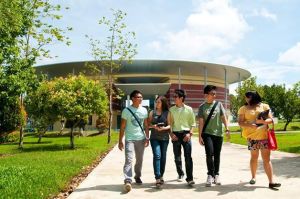
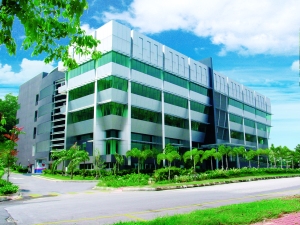
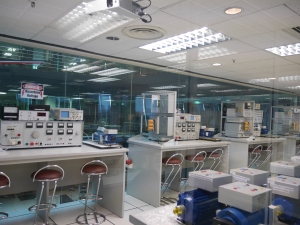

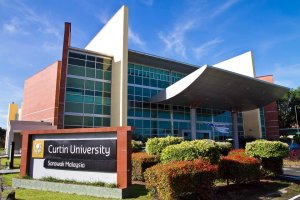

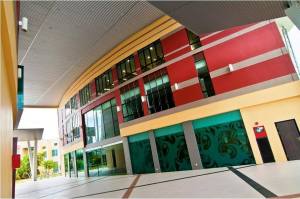






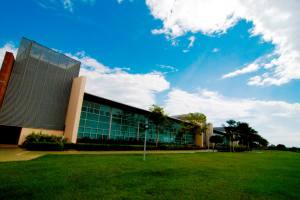



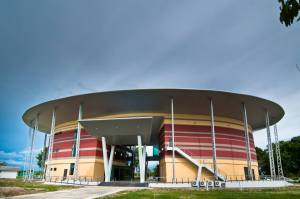
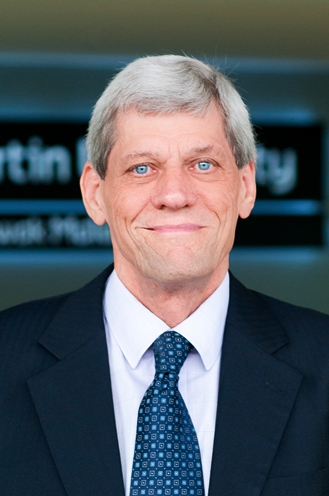
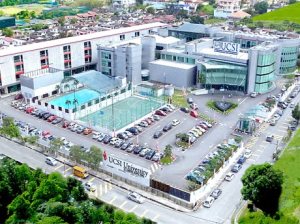
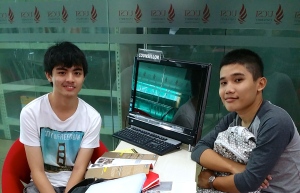
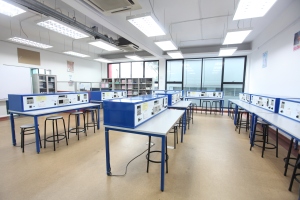

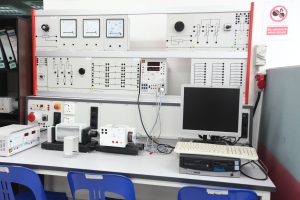
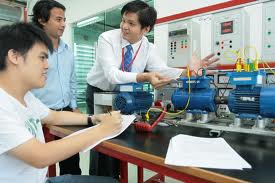

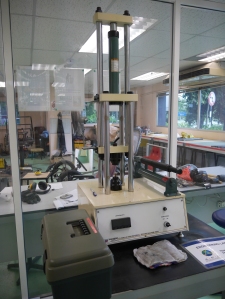
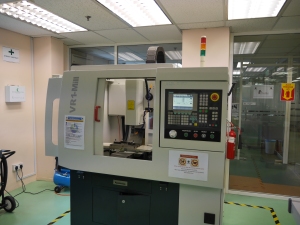
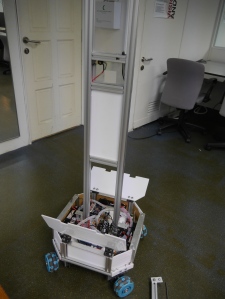

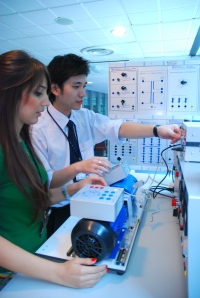
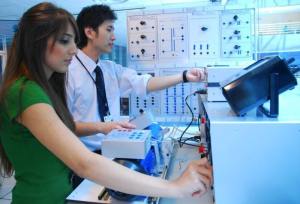
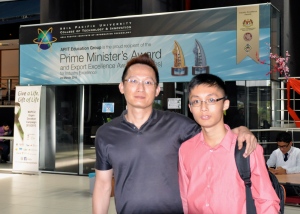
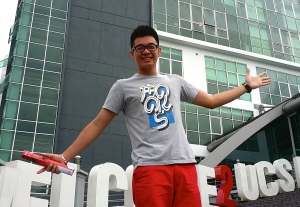
No comments:
Post a Comment
Please leave your comments and questions